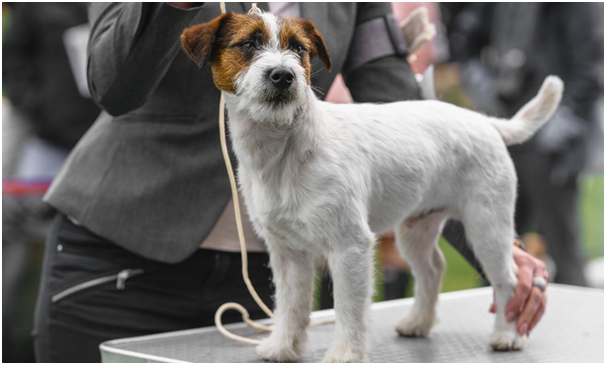
Have you got a prize pooch that you think could take home the top prize at a dog show? Or maybe you’re just thinking about entering your furry friend into a local competition. Dog shows are huge events, with all kinds of different classes for all kinds of different dogs.
For example, Crufts in the UK is one of the world’s most famous dog shows, and it features everything from agility competitions to best in show. People love it because it’s a great way to see lots of different dogs, and it’s also a great way to socialize with your own dog.
If you’re thinking about showing your dog, how do you know if he or she is ready? And what do you need to do to prepare?
Here are some important things you should consider before taking your dog to a show:
1. Health and vaccinations
First and foremost, you need to make sure that your dog is healthy and up-to-date on all of his or her vaccinations. Most dog shows will require proof of vaccination, and some may even have specific requirements, such as rabies vaccinations for international competitions.
This is important because it helps to protect not only your dog but all of the other dogs at the show. Dogs of all shapes and sizes will be in close quarters, so it’s important that they are all healthy and free of any diseases.
2. Training
It sounds obvious, but you need to make sure that your dog is well trained before taking him or her to a show. This means having basic obedience commands down, such as sit, stay, come, and heel.
You don’t want your dog to be the one who is running around off leash and getting into trouble. A good way to prepare for a show is to take your dog to some obedience classes or hire a private trainer for a few sessions.
If you’re entering a specific category for agility or obedience, then you’ll need to make sure that your dog is well trained for that as well. A lot of practice and preparation goes into these types of events, so don’t expect to be able to enter on a whim.
3. Grooming
Most dogs will need to be groomed before a show, especially if they will be entered into a category that includes judging on appearance. This means regular baths, trimming nails, and brushing fur.
If you’re not used to grooming your dog, it’s a good idea to start early and get him or her accustomed to the process. You may even want to consider hiring a professional groomer to do a show cut or style for your dog.
4. Socialization
Dogs that are going to be shown in public need to be socialized and comfortable around people and other animals. If your dog is shy or anxious, a dog show is probably not the best place to start.
Instead, work on slowly introducing your dog to new people and animals in a positive way. This could mean taking him or her to the dog park, going on walks in busy areas, or even attending doggy playdates.
5. Proper nutrition
A healthy diet is important for all dogs, but it’s especially important for those who are going to be shown in public. A good quality dog food will give your dog the energy and nutrients he or she needs to stay healthy and perform well.
You may also want to consider supplements, such as fish oil, to help with coat health and condition. Speak with your veterinarian about what type of diet is best for your dog and his or her specific needs.
6. Crate training
If you’re going to be traveling with your dog to a show, he or she will need to be crate trained. This means being able to stay in a crate for long periods of time without getting anxious or stressed.
Most dogs can be crate trained with patience and positive reinforcement. Start by letting your dog explore the crate on his or her own, and then slowly start adding in longer periods of time.
7. Proper ID
Make sure that your dog always has proper identification, even if he or she isn’t going to be shown in public. This includes a collar with tags that have your name and contact information.
It’s also a good idea to microchip your dog in case he or she ever gets lost. That way, you can be reunited more quickly and easily.
8. Exercise
A well-exercised dog is a happy dog, and a happy dog is more likely to do well in a show setting. Make sure that you are providing your dog with enough exercise on a daily basis. This could mean going for long walks or runs.
Additionally, mental stimulation is important for dogs of all ages. This could include playing fetch, working on obedience commands, or doing some agility training.
9. Toys & Accessories
Depending on the type of show you’re entering your dog into, he or she may need specific toys or accessories. This could include a show lead and collar, grooming tools, or a crate.
Do your research ahead of time so that you know what you need to bring with you on the day of the show. This will help to make the event go more smoothly.
10. Relaxation
The night before a big show, it’s important that both you and your dog are able to relax. This means having a quiet evening at home with minimal activity.
Give your dog a calm massage, and avoid any type of excitement or play. This will help to ensure that he or she is rested and ready for the big day.
Following these tips will help to make sure that both you and your dog are prepared for a successful showing experience. Remember to relax and have fun, and you’re sure to create some lasting memories. Good luck!
